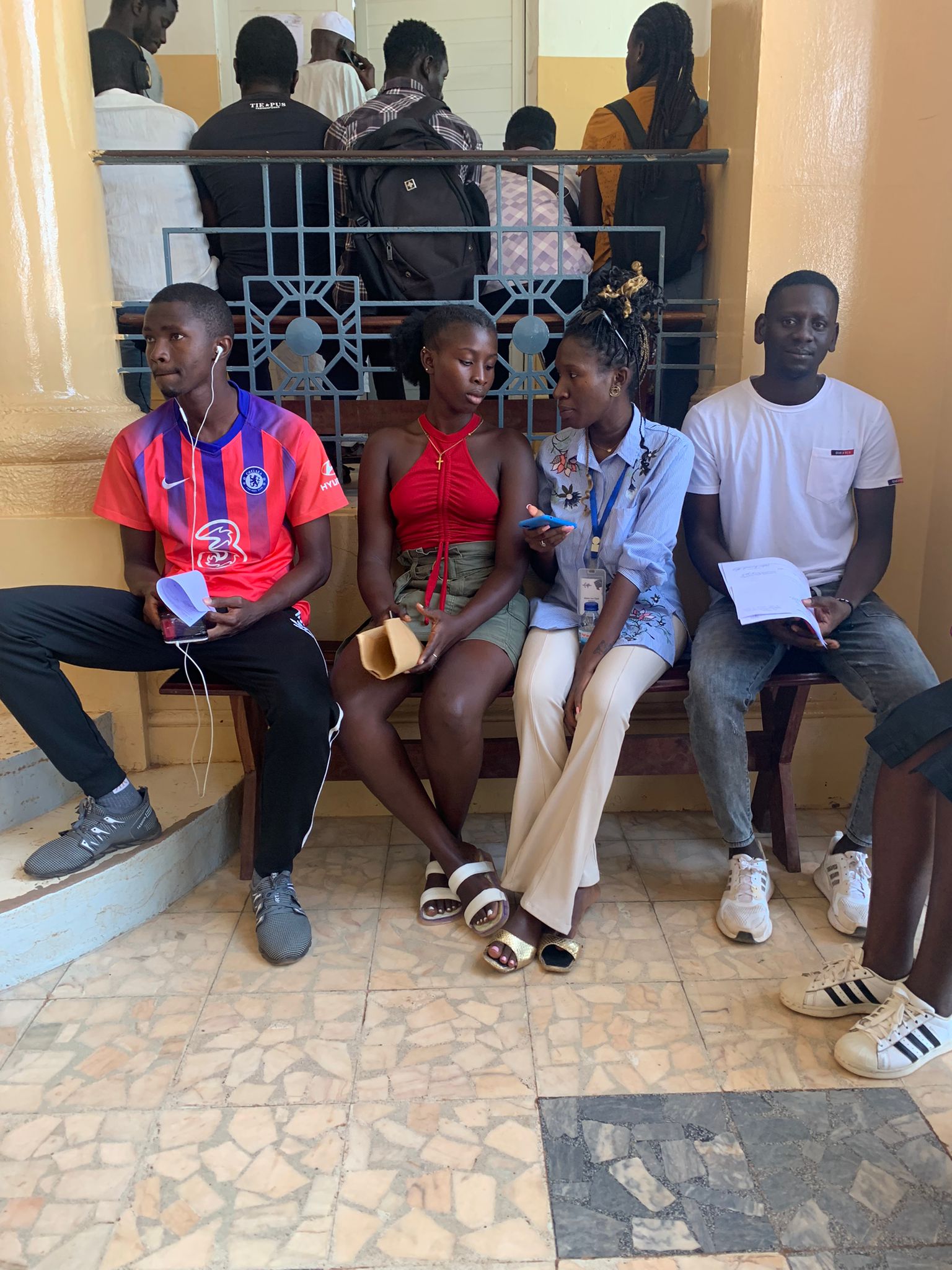Challenge statement
Challenge type: If you are working on multiple challenges, please indicate if this is your "big bet" or "exploratory" challenge.
Please note: we ask you to only submit a maximum of 3 challenges - 1x Big Bet, 2x Exploratory. Each challenge must be submitted individually.
BIG BET
Challenge statement: What is your challenge? (Please answer in specific terms: "Our challenge is that...”.)
Our challenge is that:
a) there are no statistics produced/ available at the Ministry of Justice, resulting in uninformed decicionmaking and inadequate solutions for the resulution of the populations barriers.
b) manual processes and a need for E- Governance
c) unoptimized workflow processes in the Ministry of Justice resulting in lack of transparency and increased oppotunity for corruption
Background: What is the history of your challenge? What is causing or driving it? Who is involved? How does the current situation look like? What undesired effects does it produce?
The provision of sufficient, affordable and quality basic services in Guinea-Bissau is extremely limited. It is further exacerbated due to lack of proper information about processes and mechanisms for those services. Some of the main drivers are the weak governance system and political instability limiting State’s capacity to deliver services. The Government, the institutions and the population are involved and some of the undesired effects are long processing times, mismanagement, lack of transparency and often corruption. The endemic fragility coupled with public administration’s poor performance and lack of infrastructure are other aggravating factors that limit services, and related information, to reach all communities. The poor service delivery and lack of an effective and efficient system affect most of the population, urban and rural communities alike. However, rural inhabitants, especially women and children, are the ones suffering the most.
Quantitative evidence: What (official) data sources do you have on this challenge that better exemplifies the importance and urgency of this frontier challenge? You can add text, a link, or a picture.
The MICS report from 2019 indicates that the country does not have a functioning civil registry; the share of population with access to electricity is 46.2%; to safe drinking water is 66.2%. While the use of computers is limited (16% for men, 5% for women), on the other hand the high penetration of mobile phones (89% for women, 92% for men) represents a new frontier in transforming public service delivery.
https://mics-surveys-prod.s3.amazonaws.com/MICS6/West%20and%20Central%20Africa/Guinea-Bissau/2018-2019/Survey%20findings/Guinea%20Bissau%202018-19%20MICS%20Survey%20Findings%20Report_Portuguese.pdf
Qualitative evidence: What weak signals have you recently spotted that characterizes its urgency? Please provide qualitative information that better exemplifies the importance and urgency of this frontier challenge. You can add text, a link, or a picture.
During 2021 a set of collective intelligence workshops were carried out with different stakeholders (staff, users, international organizations, civil society, among others.), weak signals were identified:
"The lack of hygiene in the MoJ, contributed to the spread of the virus and other diseases"
"Users feel like they do not have access to simple information such as prices, process or even identifying employees of the MoJ, staff are unaware of these things, they lack the basic knowledge to inform the users."
"There is a frustration from users as they feel like there needs to be more use of technology as they often cannot get a document reprinted, it must be transcribed again because the MoJ does not store their information on a server"
"The staff group was very vocal about what they believed were the deep-rooted issues in the MoJ, namely disorganization and lack of information sharing"
"Staff felt most strongly about the need of technological advancement and adaptation in the work they are doing, they feel the work is not professionally managed and their time optimized due to manual inscriptions, there is a need for E- Governance"
"Health-wise, staff believed truly little is done to protect their health and well-being, not just with COVID-19 but other diseases such as TB"
"Overall, staff feel like they are not being invested into, in the same way they are invested into the job, pay, progression, benefits and personal development is non-existent and the MoJ needs to do more"
"Staff felt like users should have access to more information before arrival, many travel from far for simple queries, more information needs to be available for them, online, leaflets etc."
Additional perception interviews with staff and users of the Notary were carried out in 2023, confirming that many of the issues and bottlenecks presented in 2021 are still persistent.

Value proposition: What added value or unique value proposition is your Accelerator Lab bringing to solving this challenge? Why is it your Lab that needs to work on this challenge and not other actors within UNDP, other stakeholders in the country respectively? Why is it worth investing resources to this challenge?
The Lab is bringing an added value through joining hands with those who lives and operates closest to the problem, using new and innovative approaches such as System Mapping, Design Thinking and Collective Intelligence workshops, in order to co-create and test solutions with staff, users and other relevant stakeholders, to understand how processes can be simplified for transparency. Additionally, this leads well to the E - Governance, and data driving for decicion making portfolio at UNDP.
Short “tweet” summary: We would like to tweet what you are working on, can you summarize your challenge in a maximum of 280 characters?
Without statistics, decision-making is uninformed and solutions inadequate. The Ministry of Justice needs E-Governance to streamline manual processes and optimize workflows for transparency. Join The Lab in co-creating solutions with stakeholders to remove barriers and prevent corruption. #Innovation #EGovernance #Transparency
Learning questions
Learning question: What is your learning question for this challenge? What do you need to know or understand to work on your challenge statement?
What is the underlying system behind the poor access to public service provision in Bissau?
How might we improve information about access to public service provision in Bissau?
How might we improve the workflow to facilitate access to the Notary services in Bissau?
How might we digitize data in MoJ to facilitate informed decision making?
How might we bring transparency and efficiency to the Ministry of Justice through improvement of processes and data collection?
To what stage(s) in the learning cycle does your learning question relate?
Sense, Explore, Test, Grow
Usage of methods: Relating to your choice above, how will you use your methods & tools for this learning question? What value do these add in answering your learning question?
Design Thinking, Collective Intelligence and Co-Creation will be used to structure the process and generate insights about the challenges faced as well as possible solutions. Visual thinking and mapping will be used as a supportive tool when engaging with different stakeholder and map the current workflow in the Notary. The value that these will add to our learning questions is that we will be able to delve deeper into understanding the complexities of the problem and well as designing user centered solutions and tests that can generate learning about different aspects of the challenge.
Existing data gaps: Relating to your choice above, what existing gaps in data or information do these new sources of data addressing? What value do these add in answering your learning question?
There is no available data of the work of the staff in the MoJ, nor the users experience. Data in relation to public services in the country is incomplete. Almost all processes are inconsistent and made manually which makes it hard to use and compare existing data, ultimately limiting the possibility for the Government to take informed decisions.
Closing
Early leads to grow: Think about the possible grow phase for this challenge - who might benefit from your work on this challenge or who might be the champions in your country that you should inform or collaborate with early on to help you grow this challenge?
Ministry of Justice (users and staff), the population, the private sector, civil society, international organizations ex. UNICEF, UNDP Governance Cluster and the Government, amongst others.
END OF ACTION LEARNING PLAN: Thank you! The form saves automatically and your submission has been recorded. You may now exit this window.




 10Reduced innequalities
10Reduced innequalities 16Peace, justice and strong institutions
16Peace, justice and strong institutions 17Partnerships for the goals
17Partnerships for the goals
Comments
Log in to add a comment or reply.